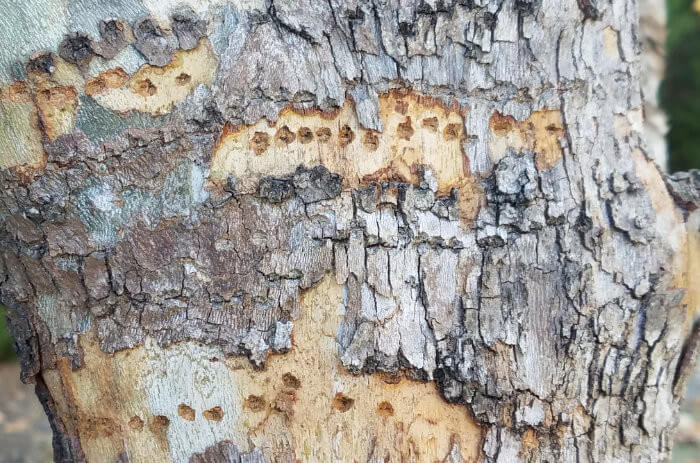
In the breathtaking landscapes of Florida, our trees stand tall, showcasing the beauty of nature. But, like everything living, they're not invincible and can fall prey to pests. If your property has trees on it in any capacity, it's essential to get the lowdown on pest damage. Being aware can be the difference between a thriving landscape and unforeseen expenses. We're diving deep into how to recognize those early signs of trouble and figuring out the next steps. Read on for insights straight from our experts at Florida's go-to tree service, Tree Work Now.
Early Signs of Pest Damage
Spotting pest damage early can mean the difference between a healthy tree and an ailing one. Some of the common symptoms include:
- Discolored leaves: Changing of the tree’s natural colors can be a sign of pests.
- Premature leaf drop: If your tree is shedding leaves when it shouldn’t be, this could indicate distress caused by pests.
- Visible insects: If you see bugs around on your branches, tree bark, or leaves, you potentially have unwanted visitors.
- Spongy or hollow bark: If the bark feels spongy, it could be the impact of wood-boring pests.
Common Pests in Florida
Knowing your adversary is half the battle won. Here are some common tree pests in Florida:
- Palm Weevils: Primarily attacking palm trees, these pests can cause yellowing and wilting.
- Southern Pine Beetle: This beetle targets pine trees and can leave a trail of dying pines in its wake.
- Ambrosia Beetles: While they attack weakened trees, their damage can be severe, leading to fungal infections.
- Whiteflies: Though tiny, these pests can cause considerable harm, leading to sooty mold growth.
Treatment Options
Once you've identified a potential pest problem, it's essential to act quickly. Depending on the severity, several treatments are available:
- Pesticides: Sometimes, a little spray can chase those pests away. Remember to read the label!
- Biological Control: This involves introducing natural predators to control the pest population.
- Cultural Control: Shift things around—pests hate that! Make your garden less inviting for them.
- Professional Tree Care: For the stubborn guests, maybe it's time to ring up the experts at Tree Work Now.
Preventative Measures
An ounce of prevention is always better than a cure. Here’s what you can do to safeguard your trees:
- Regular Inspections: Peek at your trees from time to time. Notice anything odd?
- Proper Pruning: Trim those dead branches. Pests think they’re prime real estate.
- Mulching: Not just for looks. Mulch can be a pest's worst nightmare.
- Healthy Soil: Ensuring your trees have nutrient-rich soil can boost their immunity against pests.
- Professional Assessment: Plan for a yearly tree check-up with Tree Work Now to provide your trees with the best attention and care.
The Importance of Timely Intervention
It's funny how we often forget about our trees until something goes wrong. Pests can really damage them, making trees weak and risking safety when storms hit. Many companies take a broad “cover spray” approach to pest control, using predetermined treatments to target common bugs. But every tree is different. At Tree Work Now, our certified arborists inspect each tree and customize integrated pest management for its specific needs. This sustainable approach combines preventative care, mechanical removal, targeted spraying, and more to maximize tree health while minimizing environmental impact. Keeping a close eye on trees and addressing pests early provides the best protection during Florida’s wild weather. Our expertise ensures your trees thrive year-round, rain or shine!

